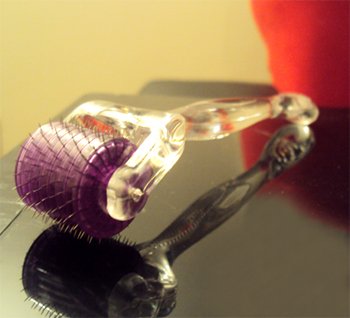Oshima Tsubaki Camellia Hair Care Oil - 60ml


Oshima Tsubaki Camellia Hair Care Oil - 60ml Details
Oshima Tsubaki Camellia Hair Care Oil - 60ml 100% Camellia Japonica seed oil from Japan is the natural way to restore moisture and sheen to hair with just a few drops.
Product Size: Net Volume: 60ml, or about 2.0 US fluid ounces. Read more
 Brand :
Brand : Camellia
List Price : $21.75
Special Prices : Check Special Offers 
Availibility : Usually ships in 1-2 business days
Oshima Tsubaki Camellia Hair Care Oil - 60mlCustomer Reviews
Advertising Disclosures
CERTAIN CONTENT THAT APPEARS ON THIS SITE COMES FROM AMAZON SERVICES LLC. THIS CONTENT IS PROVIDED ‘AS IS’ AND IS SUBJECT TO CHANGE OR REMOVAL AT ANY TIME.
Amazon, the Amazon logo, Endless, and the Endless logo are trademarks of Amazon.com, Inc. or its affiliates.
This page is a participant in the Amazon Services LLC Associates Program, an affiliate advertising program designed to provide a means for sites to earn advertising fees by advertising and linking to amazon.com.
Tag: Oshima Tsubaki Camellia Hair Care Oil - 60ml,Camellia, Oshima Tsubaki Camellia Hair Care Oil - 60ml
I see people frequently asking the question: "Is tea good for you?". Like many health-related questions, this inquiry has both a short and a long answer. The short answer is: Yes, tea is good for you. Tea has numerous health benefits, and is quite safe for you to drink regularly and in quantity. However, some of the health benefits of tea, and the science behind them, are often exaggerated. And tea, like anything, is not without its drawbacks or health risks.
This article explains why it is healthy to drink tea, but also issues a word of caution, urging you to avoid bottled teas, especially overly sweetened ones, and seek out high-quality loose-leaf tea rather than tea bags.
Camellia
The health benefits of tea: How and why is tea good for you?
There is a great deal of exaggeration and misinformation on the internet, surrounding the health benefits of tea. To what degree has science supported the claims that tea is good for your health? The Linus Pauling institute at Oregon State University has conducted a comprehensive review of the scientific literature surrounding tea drinking. This review concluded that there was good evidence that drinking tea (any variety from the Camellia sinensis plant: green, black, oolong, etc.) provided a modest reduction in the risk of heart disease. This review said that there was some evidence suggesting other possible benefits, including preventing cancer, increasing bone density, and preventing kidney stones, although the evidence for these other effects was weaker and inconclusive.
It is also worth mentioning that unsweetened tea is an all-natural, calorie-free drink which is a good alternative to sugary drinks such as soda and fruit juice. And, by virtue of being bitter and aromatic, tea provides a good way to develop the palate to help a person prefer bitter and aromatic foods. This can help you to naturally make good choices in selecting foods to eat, since unhealthy processed foods tend to be salty, sweet, and relatively devoid of aroma, and tea will help you develop your tastes so that you prefer healthier foods.
Bottled tea is not good for you:
Ready-to-drink(RTD) iced tea products, including bottled and canned teas, are generally not healthy. These products often are loaded with sugar, sometimes in the form of high-fructose corn syrup. The sugar content alone of these drinks is enough to make them healthy. In addition, the antioxidants in these products break down over time, so by the time you drink them, you obtain little, if any, of the health benefits associated with these antioxidants.
Is anything bad for you about tea?
Too much of anything is bad for you, and tea is no exception. Antioxidants, which are generally perceived by the public as beneficial to health, are not necessarily good for you. Antioxidants can bind to minerals such as calcium and iron, and thus can lead to deficiencies in these minerals. If this is a concern of yours, such as if you suffer from anemia, you may want to drink tea in between meals, rather than with meals, so that it does not interfere with the absorption of essential nutrients.
Tea also contains caffeine, which can also be a point of concern for some people. Heavy caffeine use can contribute to anxiety, insomnia, and a variety of other health problems. However, the amount of caffeine in tea is much less than coffee, which makes it a good alternative to coffee for those seeking to moderate their caffeine intake.
Buy high-quality loose-leaf tea:
Not only is loose-leaf tea fresher, but the difference in quality, reflected in taste and aroma, is astounding. If you have not yet experienced the joys of good-quality loose-leaf tea, I would seriously encourage you to do so. If you own a strainer and a tea pot, you already have enough to make the switch to loose leaf, but you may also want to invest in a filter or infuser, such as a basket infuser that sits inside a mug or teapot.
In summary: Tea is Good For You.
Tea is good for you, but too much of a good thing is never good for you. So drink up, but in moderation.
Is Tea Good For You? - The Health Benefits and Risks of Tea
Alex Zorach is the founder and editor-in-chief of RateTea, the definitive source for tea information online. RateTea has a database of teas, classified by brand, style, and region, and has user-submitted reviews as well as professionally-researched articles about different varieties of tea and their health benefits. You can read more about how tea is good for you on this website, and learn about how to locate high-quality teas for a reasonable price.
























